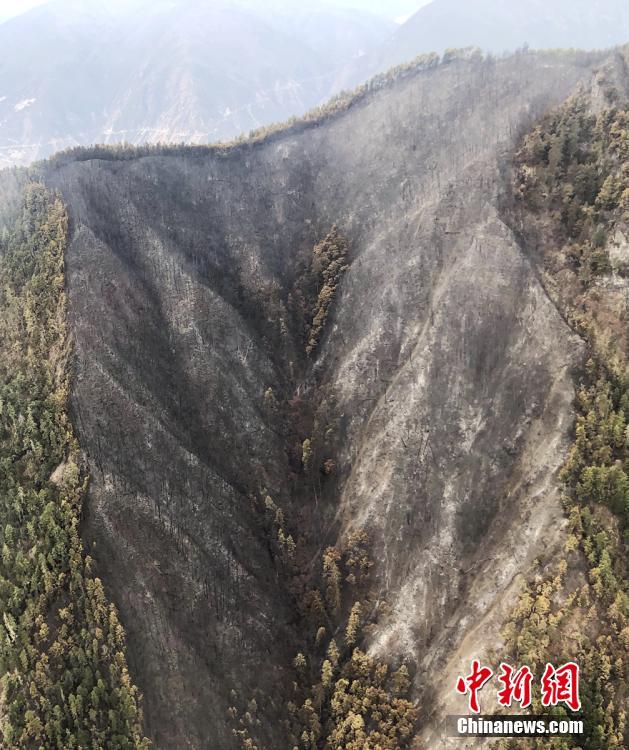Disasters seem to breed all types of rumors,babysitter sex videos tricks and scams, and Tropical Storm Harvey is no exception.
People have impersonated federal agents and tried to make money off insurance scams amid the storm and its aftermath, according to the new "Hurricane Harvey Rumor Control" page on FEMA's website.
The site says it has affirmed or debunked several rumors since at least Aug. 27.
SEE ALSO: Tropical Storm Harvey is the strongest to hit the US in 12 yearsThe new page aims to clear up rumors about whether FEMA charges for "damage inspections" (they don't), what paid assistance FEMA is looking for, and more.
The information is helpful, but some of the claims on the site could do with just a little more context. We've taken a deeper look at a select few of the rumors FEMA called out on its site, below.
On its rumor-control page, FEMA says this:
"There are reports individuals must file a flood insurance claim before Friday, September 1 because a new Texas law goes into effect that day and all claims filed after Sept. 1 would be negatively impacted. This rumor is FALSE."
Flood insurance provided by the National Flood Insurance Program won't be affected by the change in Texas law, according to the site as well as a FEMA spokesperson.
But Harvey victims need more explanation to fully grasp the concern. Individuals filing a post-Harvey property damage claim with a private insurance company may have actually wanted to do whatever they could to file before Sept. 1.
House Bill 1774 goes into effect on Sept. 1, and it reportedly forces certain Texas insurance policyholders to provide more information when they give notice about filing a lawsuit against a private insurance company that individuals feel has withheld claim money or taken too long to pay up. The law, intended to prevent frivolous lawsuits, essentially heightens the hurdles for filing a lawsuit for claims made after Sept. 1. The law also reduces the penalty interest paid by insurance companies.
Texas Congressman Joaquin Castro has even urged residents to get their claims in before Sept. 1.
This Tweet is currently unavailable. It might be loading or has been removed.
This Tweet is currently unavailable. It might be loading or has been removed.
However, Stephanie Goodman, the deputy commissioner for public affairs at the Texas Department of Insurance, said the new law "won't affect most Harvey claims because it doesn't apply to flood or windstorm policies, and only a small percentage of homeowners claims end up in a lawsuit."
"There are rumors undocumented immigrants cannot go to a shelter because they will be reported to ICE or CBP. This is false," FEMA's site says unequivocally.
Customs and Border Protection (CBP), Immigration and Customs Enforcement (ICE), and the City of Houston all have said they won't deport undocumented immigrants who seek refuge from Harvey in area shelters.
This Tweet is currently unavailable. It might be loading or has been removed.
That may prove to be true, but it's worth noting that ICE has viciously pursued undocumented immigrants under President Donald Trump. Those optics and the fact that ICE/CBP also said the agencies would keep immigration checkpoints open as Harvey approached caused an outpouring of concern that undocumented immigrants would risk riding out the storm rather than seek shelter elsewhere. Government officials may have promised no consequences for undocumented immigrants seeking shelter, but the fact that the immigration checkpoints remained open caused many to worry about the mixed messaging.
A reminder that Texas Border Patrol did not shut down immigration checkpoints which could potentially get people killed during the Hurricane https://t.co/glggHm8Ycv
— X (@XLNB) August 26, 2017
This Tweet is currently unavailable. It might be loading or has been removed.
This Tweet is currently unavailable. It might be loading or has been removed.
FEMA warns site visitors to watch out for fake government agents in Harvey's wake, and says it's "true" that people have impersonated "Homeland Security Investigations" agents.
Here's what FEMA says residents should do to identify real government officers and agents:
Real Homeland Security Investigations officials wear badges labeled "special agent," which members of the public can ask to see and verify. U.S. Immigration and Customs Enforcement officers with Enforcement and Removal Operations (ERO) also wear badges labeled with ERO Officer. They also carry credentials with their name and organization. Members of the public who receive such visitors should ask to see these properly labeled badges, and their credentials.
The rumor page advises residents to be wary of calls and people walking around asking you to sign anything. "Ask for identification," the website says, and "don't sign anything you don't understand or contracts with blank spaces."
If southeast Texans have suspicions about any insurance calls they've received or services they've been offered in the aftermath of the storm, the website seems worth checking out.
Some of its claims just need to be taken in a broader context.
(Editor: {typename type="name"/})
 Elon Musk's DOGE.gov website can apparently be edited by anyone
Elon Musk's DOGE.gov website can apparently be edited by anyone
 Apple iPad Mini Black Friday deal: $399.99 at Amazon
Apple iPad Mini Black Friday deal: $399.99 at Amazon
 Black Friday deals Amazon vs. Walmart: Comparing the best sales
Black Friday deals Amazon vs. Walmart: Comparing the best sales
 Best Black Friday space heater deal: Save 50% on MORENTO
Best Black Friday space heater deal: Save 50% on MORENTO
 Best Samsung Galaxy Watch Ultra deal: Save $200 at Best Buy
Best Samsung Galaxy Watch Ultra deal: Save $200 at Best Buy
Amazon CEO tries to sell kids on working on the moon
 Despite all the innovations around us, kids still need as much encouragement as possible to become t
...[Details]
Despite all the innovations around us, kids still need as much encouragement as possible to become t
...[Details]
NYT Connections hints and answers for November 26: Tips to solve 'Connections' #534.
 Connectionsis the latest New York Times word game that's captured the public's attention. The game i
...[Details]
Connectionsis the latest New York Times word game that's captured the public's attention. The game i
...[Details]
The internet doesn’t like the new iOS 18 Photos app redesign — how to fix it
 Confused by the new iOS 18 Photos app? You're not the only one.Apple updated the default Photos app
...[Details]
Confused by the new iOS 18 Photos app? You're not the only one.Apple updated the default Photos app
...[Details]
Thanksgiving dinner from Dollar Tree? TikTok creator going viral for her $20 holiday meal
 The holidays can prove challenging for myriad reasons. Family can be hard. Traveling sucks. But, if
...[Details]
The holidays can prove challenging for myriad reasons. Family can be hard. Traveling sucks. But, if
...[Details]
Then and Now: Six Generations of $200 Mainstream Radeon GPUs Compared
Best Amazon Black Friday deals: Premium brands like Ninja, Dyson, Apple and more are up to 50% off
 SAVE UP TO 50%:Amazon has marked down gifts from premium brands like Dyson, Ninja, Le Creuset, and m
...[Details]
SAVE UP TO 50%:Amazon has marked down gifts from premium brands like Dyson, Ninja, Le Creuset, and m
...[Details]
Nintendo Switch Pro Controller deal: Save $20.99 at Walmart
 GET $20.99 OFF:Nov. 26, the Nintendo Switch Pro Controller is $49.00 at Walmart, shop now and save $
...[Details]
GET $20.99 OFF:Nov. 26, the Nintendo Switch Pro Controller is $49.00 at Walmart, shop now and save $
...[Details]
Black Friday Ninja deals: Ninja Slushi in stock, plus the Creami and air fryers on sale
 Table of ContentsTable of ContentsA quick look at the best Ninja deals ahead of Black Friday
...[Details]
Table of ContentsTable of ContentsA quick look at the best Ninja deals ahead of Black Friday
...[Details]
Clean energy projects soared in 2016 as solar and wind got cheaper
 Global investment in clean energy fell in 2016 -- and that's largely a good thing.The world spent le
...[Details]
Global investment in clean energy fell in 2016 -- and that's largely a good thing.The world spent le
...[Details]
Microsoft Outlook outage: What happened?
 A Microsoft outage on Monday has affected Outlook and Teams users. Microsoft is aware of the issue a
...[Details]
A Microsoft outage on Monday has affected Outlook and Teams users. Microsoft is aware of the issue a
...[Details]
接受PR>=1、BR>=1,流量相当,内容相关类链接。